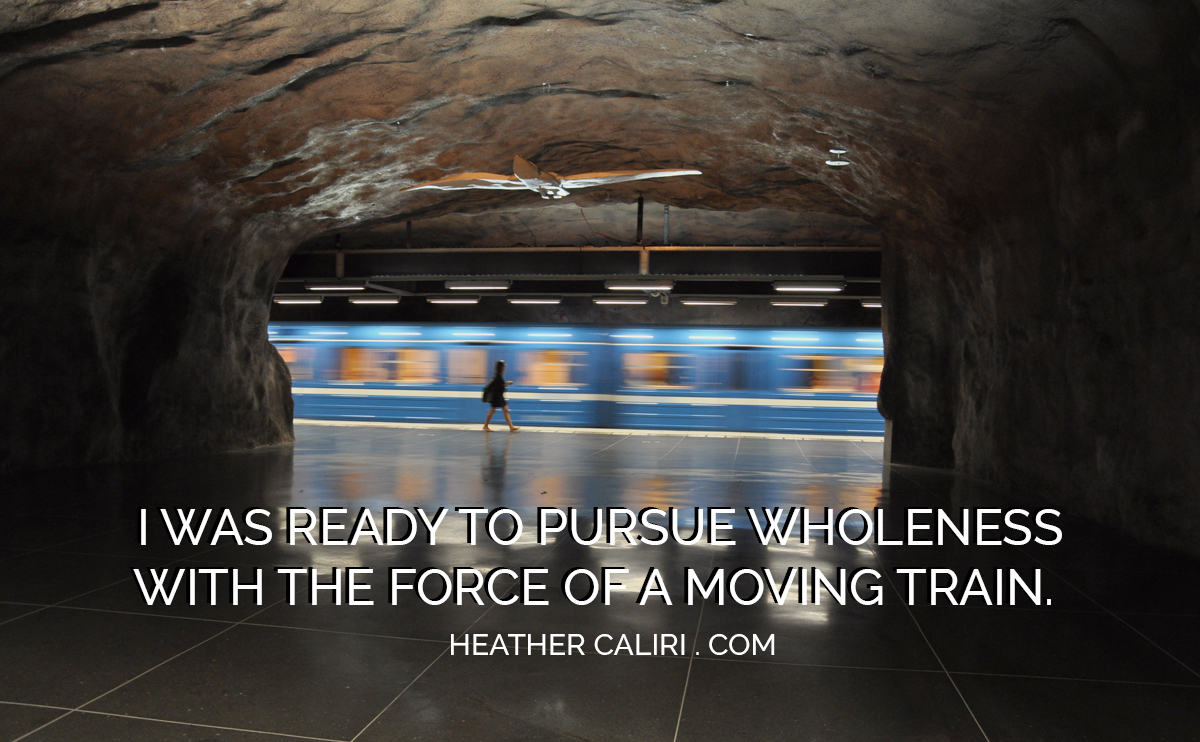
Inspired by my friend Addie’s second book, Night Driving.
I was lucky that Sunday morning—the train was mostly empty and I scored a window seat. The whistle blew and we started juddering forward, me looking at the station, buildings, graffiti move away from me, picking up speed as the train accelerated.
Out of the depths, I prayed. Out of the depths I cry to you. Oh, Lord hear my voice. I was close to tears.
I was on my way to church in Buenos Aires, a half-hour ride from my family’s apartment. I’d volunteered for childcare that week, and had to be there early for a meeting. A friend of mine led the meeting, my daughter would be in my class later. And beloved friends from my time in Argentina filled the church: the pastor, two elders, and older folks who’d hosted me for meals when I was studying here as a university student.
So why, rolling ever faster towards this gathering of friends and Jesus, did I feel such dread?
Out of the depths I cry to you, I prayed. Help.
My family had decided on a six month sabbatical in Argentina a while before for reasons unconnected to church. But in my heart of hearts, I’d been looking forward to a break from our stateside church home. I’d been there for two decades, and I was bored and jaded and done. The sabbatical might be a great excuse to not return to our home church when we got back. A good chance to reinvent our church experience.
I assumed reinvention would start in Buenos Aires.
But to my surprise, the church sabbatical hadn’t felt like a relief. Instead, the cynicism and boredom and bitterness I’d felt towards my old church had followed me to Buenos Aires.
This realization haunted me because I realized the darkness haunting me was about me, not any particular church.
Oh, Lord, hear my prayer.
I felt bewildered and ashamed by my bitterness. I was desperate to not feel bitter at church anymore, desperate for church to feel like home again. I thought couldn’t hang on much longer without rich Christian community.
Why, when I sat down in a pew, did I feel such ugliness instead of wholeness?
There on the train in Buenos Aires, I was well and truly in the dark. My desperate prayer was asking God to find light at church. At the time, I thought I was praying to find a new church I could not feel cynical about.
As I prayed, I felt a release. The release could have been God’s peace. And—or—it could have been me releasing myself from fixing my darkness. I realized I had to depend on God to change church for me, because I was incapable of it.
That day I trusted that God would light my way out of my lonely cynicism—and place me back into beloved community.
That happened. Sorta.
It’s two years later, and honestly, church still feels like a puzzle. In Argentina, I longed to feel plugged-in, where the electricity of fellowship powered my everyday walk with Jesus.
That hasn’t happened. I still don’t know how to tie myself and my family into fellowship. A few tries haven’t been disasters, but neither have they worked magic.
No: the miracle I prayed for turned out to not be the miracle I received.
Months after we returned to California, Jesus showed me the roots of my bitterness. I fully understood the spiritual abuse I’d suffered two decades ago. Reckoning with that darkness wasn’t pretty. It did not ‘plug me in’ to my church.
But uncovering the source of my darkness helped me seek intentional reconciliation and honesty with my church of two decades. I was desperate enough to speak up, even though the idea of talking about the abuse with church staff gave me the willies.
I got a good reception—better than I’d hoped. And speaking my anger and cynicism aloud lanced my bitterness like a boil.
What God gave me in the darkness that day on the train was not a magical solution to my problems, but the awareness that I truly had nothing to lose. I was so desperate I was ready to pursue wholeness with as much force as a moving train.
Accepting my struggle with church also has opened my eyes to my relationship with loneliness. I see now that loneliness (or solitariness) is a deep-seated part of who I am. That’s not the church’s fault. Rather than shaming myself for it, or being angry that church can’t busy it away, I am learning to lean into it and figure out what fellowship my loner self is truly hungry for.
I wouldn’t say I’m out of the dark with my sense of loneliness at church. But I’m content. I’m free. I’m still trusting that things will get easier with time, practice, and God’s help.
In Psalm 139, it says, “darkness will not be dark” to God, that “the night will shine like the day.” Even if I’m still in the dark, I sense that God is not. To see him illuminate years-old hurts and teach me how to recover has freed me from spiritual oppression. And even if it’s still dim inside my church experience, my eyes have gotten used to the twilight.
Honestly, Psalm 139 doesn’t say God will whisk us out of dark places—just that the Lord has awesome night-vision. Perhaps our God is at home in the dark. Maybe a long journey in the dark sharpens our senses and dependency on him. Maybe there’s rest available when we are hidden from the sun.
Maybe the best miracles are the ones we don’t see coming.
Go buy this girl’s book, okay?














 Small Groups: FAQ for Slight Misanthropes
Small Groups: FAQ for Slight Misanthropes
Yes. Coming out of the darkness doesn’t mean tying things up in neat little packages; sometimes we don’t come out of the darkness at all. But accepting what we’re feeling is so important to the darkness, too. Being in darkness is okay. God is there.
Thanks for your honesty.
Amen to that. A ‘man of sorrows’ can track with us wherever we might ramble. Thanks for the comment, Alina 🙂
This is so lovely, Heather. And so FAMILIAR. Our journeys are so similar, sans Barcelona. 😉 I loved the part in particular about darkness helping you to figure out your relationship to loneliness and learning into it. Lovely and challenging. Thank you so much for linking up, friend!
My pleasure, Addie 🙂
Still plugging along on my way through all the synchroblog posts. Yours rings in my heart. Thanks!